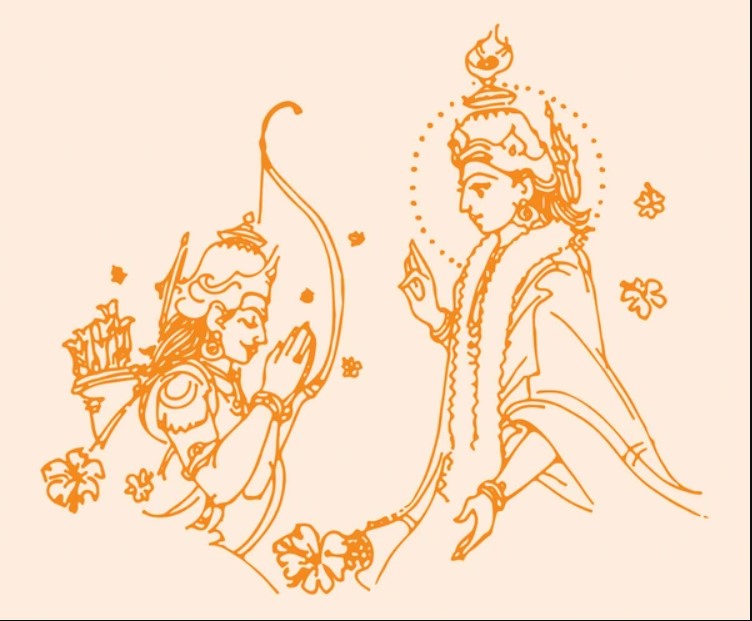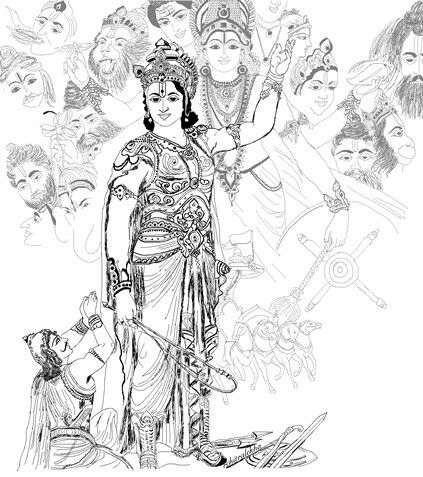Arjuna's Triumph: A Mythological Tale of Mental Health
Long in the past, inside the historical land of Bharat, there was a extraordinary warrior named Arjuna, one of the Pandava brothers. Renowned for his unequalled talent with the bow and arrow, Arjuna was a key figure inside the Mahabharata, an epic tale of responsibility, honor, and the warfare for righteousness.
As the Pandavas prepared for the extraordinary battle of Kurukshetra, Arjuna discovered himself status in his chariot at the battlefield, going through his cousins, the Kauravas, and their ambitious military. Despite his courage and strength, Arjuna changed into overwhelmed with despair and confusion. He could not deliver himself to fight against his personal family, teachers, and buddies, all of whom he held expensive.
His hands trembled, his thoughts turned into clouded, and his coronary heart sank. "How can I fight in this warfare?" Arjuna lamented. "I see no cause in slaughtering my circle of relatives. What victory ought to justify such destruction?"

Seeing Arjuna's distress, his charioteer and pricey friend, Lord Krishna, spoke to him. "Arjuna, why do you permit doubt and sorrow cloud your mind? Your obligation as a warrior is to fight for righteousness and uphold dharma. You ought to rise above these emotions and satisfy your responsibilities."
Arjuna, struggling to find clarity, responded, "Krishna, my mind is in turmoil. I am paralyzed by way of my feelings and not able to assume genuinely. How can I locate peace and make the right choice?"
Krishna smiled and commenced to impart the wisdom of the Bhagavad Gita, a sacred text that offers profound insights into life, obligation, and intellectual well-being. He defined that genuine power comes now not just from bodily prowess but from mental readability and emotional stability.
"Arjuna," Krishna stated, "your thoughts is a effective tool, but it can also be your best enemy if now not managed. To gain intellectual health and peace, you should practice self-recognition, discipline, and devotion. Understand that life is a sequence of battles, both external and internal. By learning your thoughts, you can conquer any challenge."

Krishna taught Arjuna the importance of mindfulness and meditation, explaining that by using focusing his thoughts and controlling his breath, he may want to calm his turbulent mind. He emphasized the importance of detachment, urging Arjuna to carry out his responsibilities with out attachment to the effects, therefore liberating himself from the tension of outcomes.
"Seek balance in all matters," Krishna counseled. "Too plenty attachment or aversion results in suffering. By keeping equanimity, you may locate peace and strength to perform your obligations."
Arjuna listened closely, progressively locating solace in Krishna's phrases. He started to exercise the strategies Krishna taught him, focusing his mind, regulating his breath, and detaching from his fears and doubts. As he did, a profound sense of calm and clarity washed over him.
With his mind now clean and his heart at peace, Arjuna stood tall, equipped to face the struggle. He found out that his proper enemy was no longer the Kauravas, however his own inner turmoil. By conquering his mind, he determined the strength to satisfy his dharma.
As the battle of Kurukshetra started, Arjuna fought valiantly, not out of anger or hatred, but with a clear thoughts and a targeted coronary heart. His newfound intellectual clarity and emotional balance guided him thru the challenges of struggle, in the long run leading to the victory of righteousness.
The story of Arjuna and Krishna highlights the undying significance of mental fitness. It teaches us that actual strength and resilience come from inside, from mastering our minds and maintaining emotional balance. Just as Arjuna triumphed over his inner struggles, we can also conquer our challenges by using nurturing our mental properly-being, seeking clarity, and finding peace within ourselves.